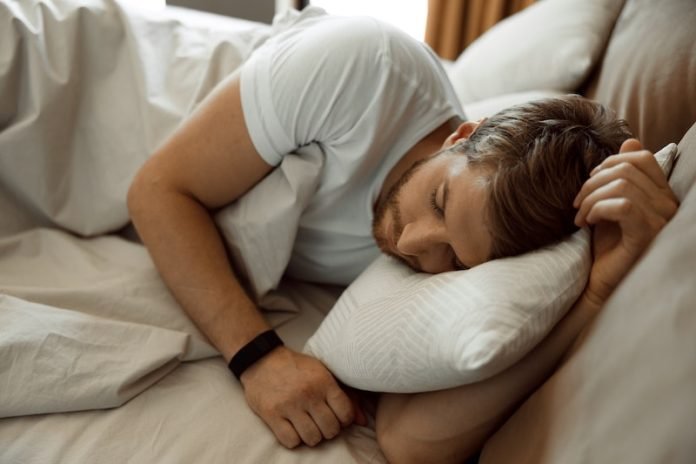
What Sleep Apnea Is and Why It’s a Problem
Sleep apnea is a sleeping disorder where you briefly stop breathing while you sleep, sometimes for just a few seconds, but sometimes for much longer.
This happens many times during the night and disrupts your sleep. You wake up feeling tired and find it hard to focus during the day.
But that’s not all; untreated sleep apnea can lead to high blood pressure, heart problems, and even diabetes. Now, new research has found another troubling link: it may also speed up how quickly your cells age.
The Science Behind It
Our body’s cells have something like a “biological clock” at the ends, known as telomeres. These telomeres get shorter as we get older, and when they get too short, the cell can’t divide and renew itself anymore.
Think of telomeres like the plastic tips on shoelaces that keep them from fraying; once they’re gone, the shoelace starts to unravel.
Scientists from the Federal University of São Paulo in Brazil studied 46 men between 50 and 60 years old who had moderate to severe sleep apnea.
Half of the group used a machine called a CPAP (Continuous Positive Airway Pressure) to help them breathe better at night for six months. The other half used a fake CPAP machine as a control.
The team took blood samples to measure the length of the telomeres before and after the study. They found that the group using the real CPAP had slower telomere shortening compared to the control group.
This suggests that treating sleep apnea might slow down the aging process at the cellular level.
The Bigger Picture
This study adds to growing evidence that sleep quality is crucial for healthy aging. Professor Sergio Tufik, who led the research, has been studying sleep problems for many years.
His previous work showed that severe sleep apnea could make you age faster, equivalent to adding an extra ten years to your biological age.
According to Professor Tufik, about 30% of people suffer from sleep apnea, but very few get the proper treatment.
That’s a major problem because sleep apnea often goes hand-in-hand with obesity, which is also a growing issue. In Brazil alone, up to 80% of people who are very overweight also have sleep problems.
What Can You Do?
If you snore loudly, feel extremely tired during the day, or have been told you stop breathing when you sleep, you might have sleep apnea. A sleep study can confirm this.
The good news is, using a CPAP machine can not only help you breathe and sleep better but may also slow down cellular aging, according to this new study.
In addition to CPAP, lifestyle changes like losing weight and avoiding alcohol before bed can also help manage sleep apnea symptoms.
As Professor Tufik says, “People age faster when they sleep badly.” This study gives us one more reason to take sleep apnea seriously.
Treating it could mean a longer, healthier life, both in terms of quality and possibly even cellular age.
If you care about sleep, please read studies that common sleep and anxiety drug may cause addiction, and this herb may help you sleep better at night.
For more information about brain health, please see recent studies about common food oil in the U.S. that can change genes in the brain, and results showing this mental health drug may harm your brain health.
The study was published in Sleep.
Follow us on Twitter for more articles about this topic.
Copyright © 2023 Knowridge Science Report. All rights reserved.



